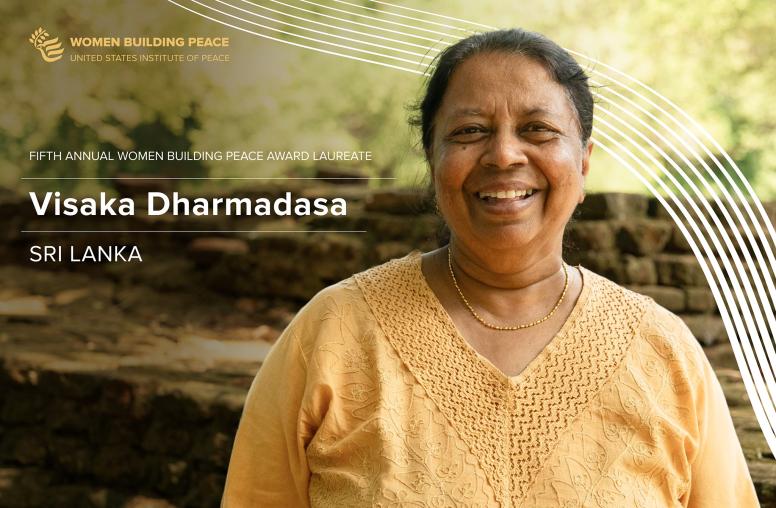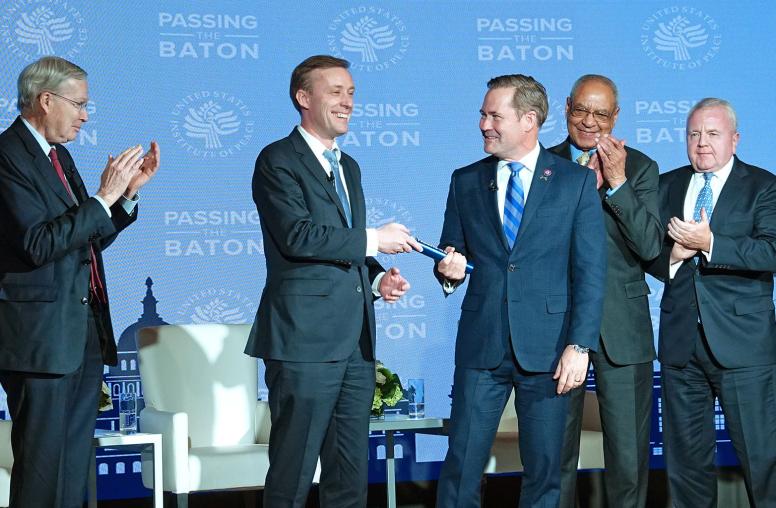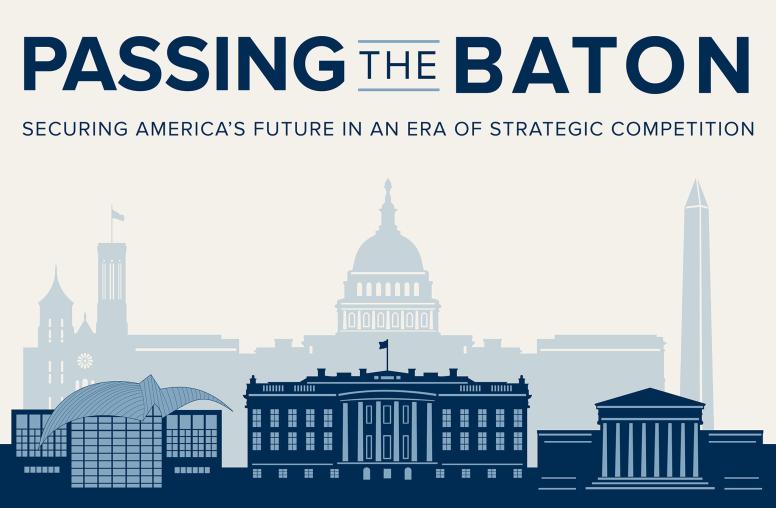First Prize in National Peace Essay Contest Awarded to Washington High School Student
June 26, 2006

Christopher Svetlik, left, Kona Shen, second from left, and Eugene Kim, far right, receive awards at the 2006 National Peace Essay Contest Awards Banquet on June 22 from Institute President Richard Solomon (center).
WASHINGTON, D.C. — Kona Shen of Seattle, Washington, was awarded first prize in a nation-wide essay contest sponsored by the U.S. Institute of Peace on stemming nuclear proliferation. A student at the Northwest School, Shen received a $10,000 college scholarship for her essay which compared the decision of Argentina and Brazil to forego nuclear arms development with the nuclear arms race between India and Pakistan.
In announcing the winner at the Institute’s annual National Peace Essay Contest (NPEC) awards banquet on June 22, Institute President Richard H. Solomon commented on the high quality of the essays and the complexity of the subject. "This year’s topic of nuclear proliferation could not be more timely—and it is also a challenge that the international community will confront for decades to come. The lessons these students take away from the researching and writing on the essay topic and from the awards week will endure."
The United States Institute of Peace is an independent organization created and funded by Congress to promote research, education, and training on the resolution of international conflicts. This was the nineteenth consecutive year it has run the National Peace Essay Contest.
Christopher Svetlik of Klein Collins High School in Spring, Texas was awarded a $5,000 scholarship for his essay on "Striking at the Source: Confronting the Dual Sources of Nuclear Proliferation." Eugene Kim, a student at Century High School in Rochester, Minnesota won $2,500 scholarship for his essay on "Comprehensive Approaches to Nuclear Nonproliferation."
Approximately 4,000 students from high schools across the United States and in U.S. territories and abroad wrote essays for this year’s contest. In her winning essay, Shen concluded that the international community "must realize that neither bilateral agreements nor international treaties will suffice without the unconditional support of one another...It is only with the complete cooperation of all nations that our society will be able to progress toward nonproliferation, resulting in an increased level of global security that will benefit all members of the international community."
Shen, Svetlik, and Kim joined 38 other state-level winners in Washington, DC from June 19 through June 22 for an Institute program that introduced them to senior U.S. government and foreign embassy officials, members of Congress, and other experts involved in the making of American foreign policy. They assumed the roles of members of a UN High Level Panel on non-proliferation in a special three-day problem-solving simulation focusing on the Iran crisis. The purpose of the exercise was to allow students to experience the challenges—experienced by all arms control practitioners—of developing a consensus on ways to control nuclear proliferation.
You can read about the students’ unique learning adventure in Washington, D.C. by visiting the 2006 Awards Week Web site.



